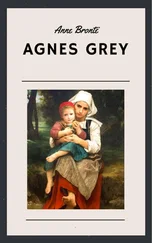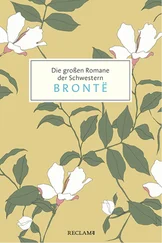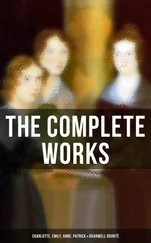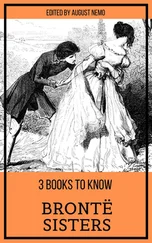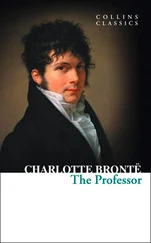But there was one present who seemed to have a better appreciation of my frame of mind. A gentleman stood by, who had been watching our conference for some time, evidently much amused at my companion's remorseless pertinacity and my manifest annoyance, and laughing to himself at the asperity and uncompromising spirit of my replies. At length, however, he withdrew, and went to the lady of the house, apparently for the purpose of asking an introduction to me, for, shortly after, they both came up, and she introduced him as Mr. Huntingdon, the son of a late friend of my uncle's. He asked me to dance. I gladly consented, of course; and he was my companion during the remainder of my stay, which was not long, for my aunt, as usual, insisted upon an early departure.
I was sorry to go, for I had found my new acquaintance a very lively and entertaining companion. There was a certain graceful ease and freedom about all he said and did, that gave a sense of repose and expansion to the mind, after so much constraint and formality as I had been doomed to suffer. There might be, it is true, a little too much careless boldness in his manner and address, but I was in so good a humour, and so grateful for my late deliverance from Mr. Boarham, that it did not anger me.
'Well, Helen, how do you like Mr. Boarham now?' said my aunt, as we took our seats in the carriage and drove away.
'Worse than ever,' I replied.
She looked displeased, but said no more on that subject.
'Who was the gentleman you danced with last,' resumed she, after a pause - 'that was so officious in helping you on with your shawl?'
'He was not officious at all, aunt: he never attempted to help me till he saw Mr. Boarham coming to do so; and then he stepped laughingly forward and said, "Come, I'll preserve you from that infliction."'
'Who was it, I ask?' said she, with frigid gravity.
'It was Mr. Huntingdon, the son of uncle's old friend.'
'I have heard your uncle speak of young Mr. Huntingdon. I've heard him say, "He's a fine lad, that young Huntingdon, but a bit wildish, I fancy." So I'd have you beware.'
'What does "a bit wildish" mean?' I inquired.
'It means destitute of principle, and prone to every vice that is common to youth.'
'But I've heard uncle say he was a sad wild fellow himself, when he was young.'
She sternly shook her head.
'He was jesting then, I suppose,' said I, 'and here he was speaking at random - at least, I cannot believe there is any harm in those laughing blue eyes.'
'False reasoning, Helen!' said she, with a sigh.
'Well, we ought to be charitable, you know, aunt - besides, I don't think it is false: I am an excellent physiognomist, and I always judge of people's characters by their looks - not by whether they are handsome or ugly, but by the general cast of the countenance. For instance, I should know by your countenance that you were not of a cheerful, sanguine disposition; and I should know by Mr. Wilmot's, that he was a worthless old reprobate; and by Mr. Boarham's, that he was not an agreeable companion; and by Mr. Huntingdon's, that he was neither a fool nor a knave, though, possibly, neither a sage nor a saint - but that is no matter to me, as I am not likely to meet him again - unless as an occasional partner in the ball-room.'
It was not so, however, for I met him again next morning. He came to call upon my uncle, apologising for not having done so before, by saying he was only lately returned from the Continent, and had not heard, till the previous night, of my uncle's arrival in town; and after that I often met him; sometimes in public, sometimes at home; for he was very assiduous in paying his respects to his old friend, who did not, however, consider himself greatly obliged by the attention.
'I wonder what the deuce the lad means by coming so often,' he would say, - 'can you tell, Helen? - Hey? He wants none o' my company, nor I his - that's certain.'
'I wish you'd tell him so, then,' said my aunt.
'Why, what for? If I don't want him, somebody does, mayhap' (winking at me). 'Besides, he's a pretty tidy fortune, Peggy, you know - not such a catch as Wilmot; but then Helen won't hear of that match: for, somehow, these old chaps don't go down with the girls - with all their money, and their experience to boot. I'll bet anything she'd rather have this young fellow without a penny, than Wilmot with his house full of gold - Wouldn't you, Nell?'
'Yes, uncle; but that's not saying much for Mr. Huntingdon; for I'd rather be an old maid and a pauper than Mrs. Wilmot.'
'And Mrs. Huntingdon? What would you rather be than Mrs. Huntingdon - eh?'
'I'll tell you when I've considered the matter.'
'Ah! it needs consideration, then - But come now - would you rather be an old maid - let alone the pauper?'
'I can't tell till I'm asked.'
And I left the room immediately, to escape further examination. But five minutes after, in looking from my window, I beheld Mr. Boarham coming up to the door. I waited nearly half-an-hour in uncomfortable suspense, expecting every minute to be called, and vainly longing to hear him go. Then footsteps were heard on the stairs, and my aunt entered the room with a solemn countenance, and closed the door behind her.
'Here is Mr. Boarham, Helen,' said she. 'He wishes to see you.'
'Oh, aunt! Can't you tell him I'm indisposed? - I'm sure I am - to see him.'
'Nonsense, my dear! this is no trifling matter. He is come on a very important errand - to ask your hand in marriage of your uncle and me.'
'I hope my uncle and you told him it was not in your power to give it. What right had he to ask any one before me?'
'Helen!'
'What did my uncle say?'
'He said he would not interfere in the matter; if you liked to accept Mr. Boarham's obliging offer, you - '
'Did he say obliging offer?'
'No; he said if you liked to take him you might; and if not, you might please yourself.'
'He said right; and what did you say?'
'It is no matter what I said. What will you say? - that is the question. He is now waiting to ask you himself; but consider well before you go; and if you intend to refuse him, give me your reasons.'
'I shall refuse him, of course; but you must tell me how, for I want to be civil and yet decided - and when I've got rid of him, I'll give you my reasons afterwards.'
'But stay, Helen; sit down a little and compose yourself. Mr. Boarham is in no particular hurry, for he has little doubt of your acceptance; and I want to speak with you. Tell me, my dear, what are your objections to him? Do you deny that he is an upright, honourable man?'
'No.'
'Do you deny that he is sensible, sober, respectable?'
'No; he may be all this, but - '
'But Helen! How many such men do you expect to meet with in the world? Upright, honourable, sensible, sober, respectable! - Is this such an everyday character that you should reject the possessor of such noble qualities without a moment's hesitation? - Yes, noble I may call them; for think of the full meaning of each, and how many inestimable virtues they include (and I might add many more to the list), and consider that all this is laid at your feet. It is in your power to secure this inestimable blessing for life - a worthy and excellent husband, who loves you tenderly, but not too fondly so as to blind him to your faults, and will be your guide throughout life's pilgrimage, and your partner in eternal bliss. Think how - '
'But I hate him, aunt,' said I, interrupting this unusual flow of eloquence.
'Hate him, Helen! Is this a Christian spirit? - you hate him? - and he so good a man!'
'I don't hate him as a man, but as a husband. As a man, I love him so much that I wish him a better wife than I - one as good as himself, or better - if you think that possible - provided she could like him; - but I never could, and therefore - '
Читать дальше
Конец ознакомительного отрывка
Купить книгу


